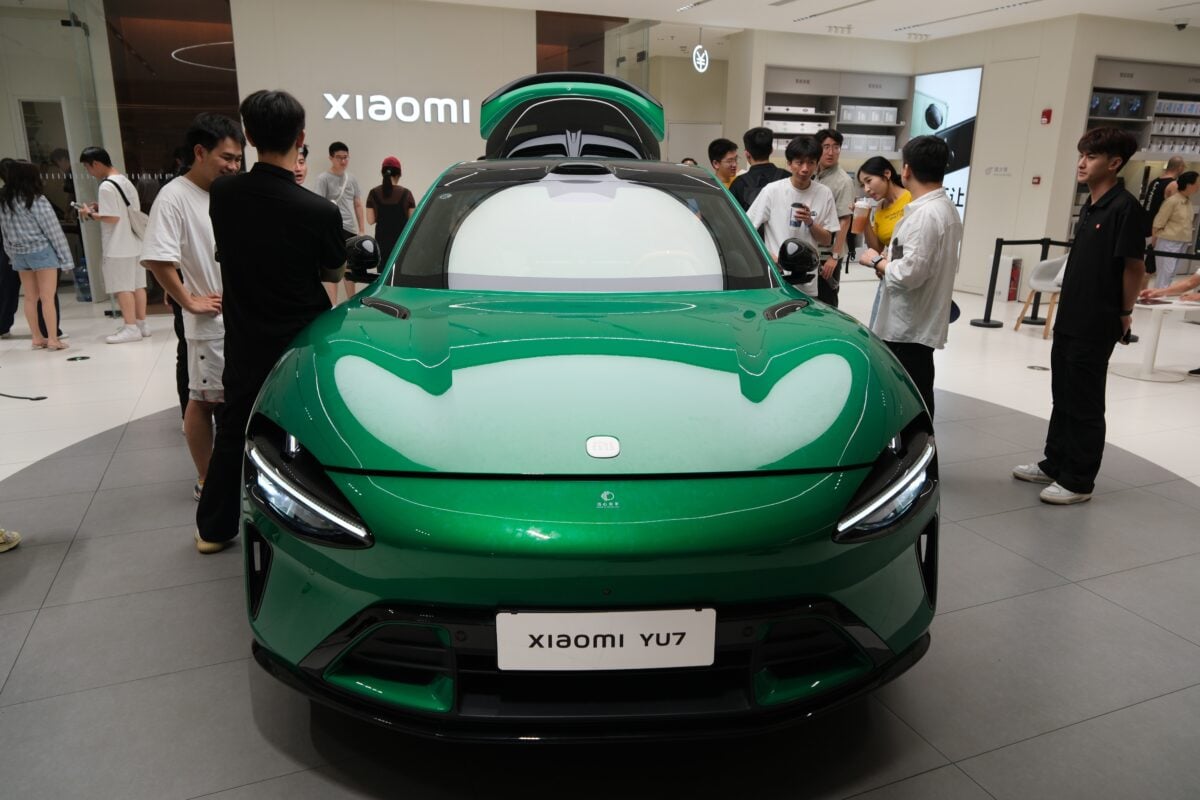TLDRs:
- Xiaomi accelerates YU7 EV production after 40,000 deliveries in three months.
- New YU7 orders now ship in 45–48 weeks, down from 59 weeks.
- Q2 revenue rises 30.5% to $16.2B, aided by YU7 SUV success.
- Xiaomi’s integrated ecosystem drives EV and smartphone market gains simultaneously.
Xiaomi is taking bold steps to meet soaring demand for its new YU7 electric vehicle. Launched on June 26, 2025, the YU7 is the company’s first electric sport utility vehicle, and its popularity has exceeded expectations.
Within the first three months, Xiaomi delivered over 40,000 units, prompting co-founder and billionaire Lei Jun to pledge an acceleration in production.
The response from Chinese consumers was immediate and intense. Reports indicate that orders for the YU7 exceeded 240,000 in just 18 hours after launch, though some included refundable deposits. This overwhelming interest has created one of the company’s biggest production challenges since entering the automotive market.
Faster Deliveries to Meet Market Pressure
Currently, new YU7 orders have estimated delivery times of 45 to 48 weeks, a significant improvement from the 59-week backlog reported last month.
Xiaomi is rapidly expanding its production capacity, aiming to reduce wait times while maintaining quality. The company’s focus on speeding up deliveries comes as part of a broader strategy to solidify its position in China’s highly competitive electric vehicle market.
By prioritizing efficiency and supply chain optimization, Xiaomi hopes to satisfy eager customers and capture a larger share of the growing new energy vehicle (NEV) segment, which has seen a 33% increase in sales during the first half of 2025.
Strong Financial Performance Driven by EVs
The YU7 SUV is not just a production success, it is also a major contributor to Xiaomi’s financial performance. In Q2 2025, the company reported revenue of 116 billion yuan (US$16.2 billion), exceeding analyst expectations of 114.7 billion yuan. Adjusted net profit jumped 75.4% year-on-year to 10.8 billion yuan (US$1.5 billion), topping forecasts of 10.1 billion yuan.
Xiaomi’s robust financial results underscore the impact of the YU7 on the company’s broader business strategy. Shares have climbed 52% since the start of 2025, despite closing slightly lower following the earnings announcement. Analysts attribute much of the success to Xiaomi’s ability to leverage its ecosystem, combining smartphones, IoT devices, internet services, and electric vehicles to create multiple revenue streams.
Ecosystem Strategy Drives Cross-Selling
Xiaomi’s integrated approach has allowed the company to capitalize on cross-selling opportunities. Smartphone users are naturally drawn to Xiaomi’s expanding range of products, including EVs, creating a synergistic effect that pure-play automotive companies often cannot replicate. The company’s return to the top smartphone spot in Southeast Asia, capturing a 19% market share after four years, complements its EV ambitions and strengthens its overall market position.
Timing has also played a critical role in Xiaomi’s EV strategy. Entering the market as NEV penetration in China surpassed 50% of passenger vehicle sales positioned the company to take advantage of a rapidly transforming automotive landscape. By entering a growing but increasingly competitive market at the right moment, Xiaomi has positioned the YU7 as both a profitable venture and a brand-defining product.
Looking Ahead
With production ramping up and delivery times shrinking, Xiaomi is poised to cement its reputation in China’s EV sector. The YU7’s early success provides both a financial boost and a foundation for future models, highlighting the company’s ability to execute large-scale manufacturing while navigating a fast-paced and competitive market.
By tackling production bottlenecks and leveraging its diverse ecosystem, Xiaomi demonstrates that a technology-driven approach to electric vehicles can yield both market share and strong returns, setting a benchmark for other tech companies entering the automotive arena.







